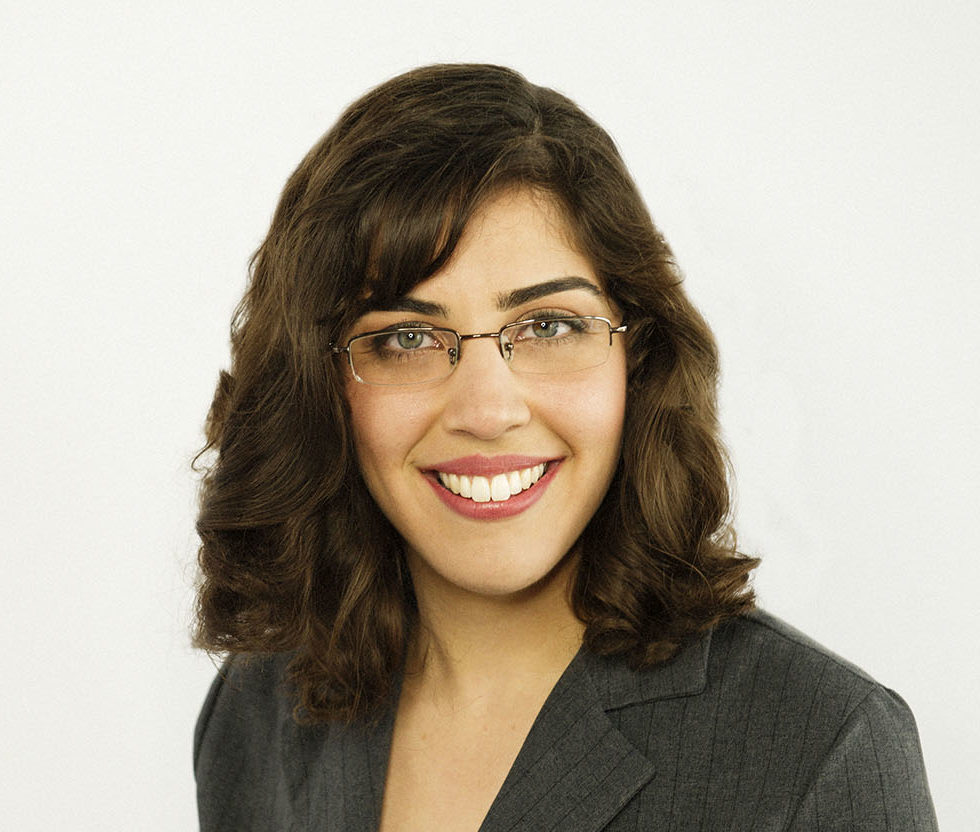Part of the 6 Jewish Thinkers All Christians Should Know series
Nechama Leibowitz: Teaching the Bible to Taxi-Drivers
Most of us won’t know her name, but Nechama Leibowitz quietly helped to transform the study of the Bible within the Jewish community. Christians, too, can learn from her passion and pedagogy. Nechama talked Scripture with everyone from famous Jewish scholars to local taxi drivers. She, and those who learned under her, remind us that anyone can study the Bible, that we should do so with rigor, and that we should do so not just “intellectually” but with an engaged and caring heart.
Enjoying this article? Read more from The Biblical Mind.
Studying Scripture: Anyone Can Do It, According to Nechama Leibowitz
Nechama Leibowitz was born in 1905 into a religious Jewish home in Latvia.1The biographical information in this article comes from a number of sources, including Yael Unterman, “Leibowitz, Nehama,” in Marion Ann Taylor and Agnes Choi, eds., Handbook of Women Biblical Interpreters: A Historical and Biographical Guide (Grand Rapids: Baker Academic, 2012), 326-30, accessed March 3, 2021, ProQuest Ebook Central ; Yael Unterman,Nehama Leibowitz: Teacher And Bible Scholar (New York: Urim Publications, 2009); Yael Unterman, “Nehama Leibowitz,” Jewish Women: A Comprehensive Historical Encyclopedia, 27 February 2009, Jewish Women’s Archive, viewed on March 11, 2021, https://jwa.org/encyclopedia/article/leibowitz-nehama; Rachel Buckman, “Mora Nechama: The One Woman Open University,” Sefaria, accessed March 11, 2021, https://www.sefaria.org/sheets/150167?lang=bi; Nehama Leibowitz, Shmuel Peerless, Yitshak Reiner, and נחמה ליבוביץ, Studies On the Haggadah From the Teachings of Nechama Leibowitz (New York: Urim Publications, 2002). Her engagement with the Bible started at a young age, when she and her brother competed in their father’s Bible quizzes. Nechama completed a doctorate in Berlin and then moved to Israel with her husband where she began training teachers and, much later, taught as a Bible Education professor.
For Nechama, however, teaching was not confined to the classroom. She taught—and learned from—others in unexpected circumstances. Nechama “traveled around the country on buses, in taxis and on airplanes teaching Bible and commentaries to teachers, new immigrants, soldiers, kibbutzniks and thousands of ordinary people.”2Unterman, “Nehama Leibowitz,” Jewish Women: A Comprehensive Historical Encyclopedia.
One year, a number of her students wished to continue studying even over the summer, so Nechama began preparing worksheets which combined biblical texts and Jewish commentaries. These worksheets, or “gilyonot,” contained questions which forced the students to look closely at the texts and commentary and draw their own conclusions. The students would mail their answers back to Nechama, who marked each worksheet individually.
Others soon wanted to join the study, and for over thirty years, Nechama supplied worksheets to thousands of correspondents of all ages and backgrounds. One of her students records, “When she reached 40,000 responses, she stopped counting.”3Lee Buckman, “Mora Nechama,” The Times of Israel, April 9, 2015, accessed March 11, 2021, https://blogs.timesofisrael.com/mora-nechama/.
In one case, Nechama found herself corresponding with an earnest but anonymous student. When Nechama finally asked for the identity of her correspondent, she learned that this committed student was a waitress at a restaurant.
The diversity of Nechama’s students points to one of the most revolutionary aspects of Nechama’s life: in studying and teaching Torah, Nechama had stepped into a sphere that had historically been occupied by men. Biographer Yael Unterman claims that Nechama was the first “serious female Jewish Bible interpreter”4Unterman, “Leibowitz, Nehama,” Handbook of Women Biblical Interpreters, 330. and that Nechama’s “unique achievements changed Orthodox society’s perception of a woman’s capabilities and undoubtedly opened doors for the female Torah scholars who followed.”5Unterman, “Nehama Leibowitz,” Jewish Women: A Comprehensive Historical Encyclopedia.
Studying Scripture: With Rigor
In addition to her influence as a female exegete, Nechama’s approach to studying Scripture also revolutionized the Jewish exegetical world. She engaged with biblical commentaries that other scholars of the Bible were not considering at that time. Yael Unterman notes that the Jewish religious scholars of Nechama’s day studied the Bible almost exclusively through the lens of the Talmud, while secular scholarship on the Bible was dominated by what is known as Biblical Criticism,6Unterman, “Nehama Leibowitz,” Jewish Women: A Comprehensive Historical Encyclopedia. an approach that focuses on the potential sources and historical context of the Bible and often denies its truth, coherence, or divine origin.
In the face of these two approaches, Nechama Leibowitz introduced a third method by revitalizing the use of classic Jewish commentaries, a move that Unterman suggests to be revolutionary. Despite being an Orthodox Jew herself, Nechama even drew from some non-Orthodox commentaries. Each commentary was “subjected to a rigorous analysis and evaluated for [its] faithfulness to the text.”7Unterman, “Nehama Leibowitz,” Jewish Women: A Comprehensive Historical Encyclopedia.
Nechama believed in closely examining the details and apparent difficulties in Scripture to discover the lessons hidden in the text.8See Unterman, “Leibowitz, Nehama,” Handbook of Women Biblical Interpreters, 329. For example, in a worksheet examining a few verses in Deuteronomy 26, Nechama demands, “What is the difficulty in our verse that our two commentators are addressing?” “What is the weakness in [one commentator’s] answer?” What reasons caused each translator to punctuate the text as he did?9Nechama Leibowitz, “פרשת כי תבוא תשכ”ח – עם סגולה,” accessed March 11, 2021, https://www.sefaria.org/sheets/160487.1?lang=bi&with=all&lang2=en. Nechama described a close reader of Scripture this way:
And if previously he was like a person who sits in a car while the views fly past unseen, now he is like someone climbing a mountain with the view unfolding before him as he sweats and toils, increasingly with every new ascent.10Nechama Leibowitz, quoted in Unterman,Nehama Leibowitz: Teacher And Bible Scholar, 454.
Many of us read the Bible quickly, looking for a quick message of encouragement or instruction; Nechama’s rigorous attention to the text reminds us of both the challenge and the richness of Scripture, calling us to careful textual interpretation.
Studying Scripture: With Genuine Care
But Nechama did not she see study of Scripture as simply an academic exercise. Rather, she looked for the ethical implications, the current application, of the passages she examined. Nechama recorded a conversation that she had on one occasion with a taxi driver.11The following story and quotations are taken from Unterman,Nehama Leibowitz: Teacher And Bible Scholar, 184–5.
“I’m so upset,” the driver told her. “I didn’t sleep the whole of last night.”
When Nechama asked the reason, the driver told her that he had been upset since the time of daily prayers. Nechama writes:
He said, “Tell me, did He forgive them? ”
“Who?” I said.
“What do you mean who? Nineveh? Who else?”
When Nechama assured her driver that God had completely forgiven Nineveh, the taxi driver then pointed to the verse at the end of Jonah: “Then why . . . does it say at the end of the book of Jonah, ‘While I will not spare Nineveh, that great city’?” Christians may not notice these sorts of complexities in our Bibles, where punctuation has been inserted that guides us toward certain readings. Nechama helped the taxi driver realize that it is possible to read God’s words as a question, challenging Jonah, rather than a statement expressing an intention to destroy Nineveh.
The taxi driver’s attentiveness to the text is inspiring in itself, but Nechama was impressed by a different aspect: “See that?” she wrote. “Thousands of people sit through the reading of Jonah and what do they care? Nothing! They’re busy looking at their watches and wondering when it’s all going to be over. . . . But he listened to the haftarah [Scripture portion] and it pained him.”
Upon realizing the alternate reading of the passage, the taxi driver exclaimed, “So it’s a good thing!” Nechama concludes, “I was so impressed! Here was a person reading the Torah and actually caring what he was reading.”
The example of Nechama and those who studied with her reminds us that any and all of us can study Scripture—not simply pastors, priests, professors, theologians, or our retired friends. Men or women, academics or non-academics, pastors or lay people, young or old—all of us have the opportunity to engage with God’s Word. Moreover, Nechama demonstrated the importance of reading Scripture closely and rigorously, but also with genuine concern for what it means, practically, to us and to the world.
End Notes
1. The biographical information in this article comes from a number of sources, including Yael Unterman, “Leibowitz, Nehama,” in Marion Ann Taylor and Agnes Choi, eds., Handbook of Women Biblical Interpreters: A Historical and Biographical Guide (Grand Rapids: Baker Academic, 2012), 326-30, accessed March 3, 2021, ProQuest Ebook Central ; Yael Unterman,Nehama Leibowitz: Teacher And Bible Scholar (New York: Urim Publications, 2009); Yael Unterman, “Nehama Leibowitz,” Jewish Women: A Comprehensive Historical Encyclopedia, 27 February 2009, Jewish Women’s Archive, viewed on March 11, 2021, https://jwa.org/encyclopedia/article/leibowitz-nehama; Rachel Buckman, “Mora Nechama: The One Woman Open University,” Sefaria, accessed March 11, 2021, https://www.sefaria.org/sheets/150167?lang=bi; Nehama Leibowitz, Shmuel Peerless, Yitshak Reiner, and נחמה ליבוביץ, Studies On the Haggadah From the Teachings of Nechama Leibowitz (New York: Urim Publications, 2002).
2. Unterman, “Nehama Leibowitz,” Jewish Women: A Comprehensive Historical Encyclopedia.
3. Lee Buckman, “Mora Nechama,” The Times of Israel, April 9, 2015, accessed March 11, 2021, https://blogs.timesofisrael.com/mora-nechama/.
4. Unterman, “Leibowitz, Nehama,” Handbook of Women Biblical Interpreters, 330.
5. Unterman, “Nehama Leibowitz,” Jewish Women: A Comprehensive Historical Encyclopedia.
6. Unterman, “Nehama Leibowitz,” Jewish Women: A Comprehensive Historical Encyclopedia.
7. Unterman, “Nehama Leibowitz,” Jewish Women: A Comprehensive Historical Encyclopedia.
8. See Unterman, “Leibowitz, Nehama,” Handbook of Women Biblical Interpreters, 329.
9. Nechama Leibowitz, “פרשת כי תבוא תשכ”ח – עם סגולה,” accessed March 11, 2021, https://www.sefaria.org/sheets/160487.1?lang=bi&with=all&lang2=en.
10. Nechama Leibowitz, quoted in Unterman,Nehama Leibowitz: Teacher And Bible Scholar, 454.
11. The following story and quotations are taken from Unterman,Nehama Leibowitz: Teacher And Bible Scholar, 184–5.
Subscribe now to receive periodic updates from the CHT.





